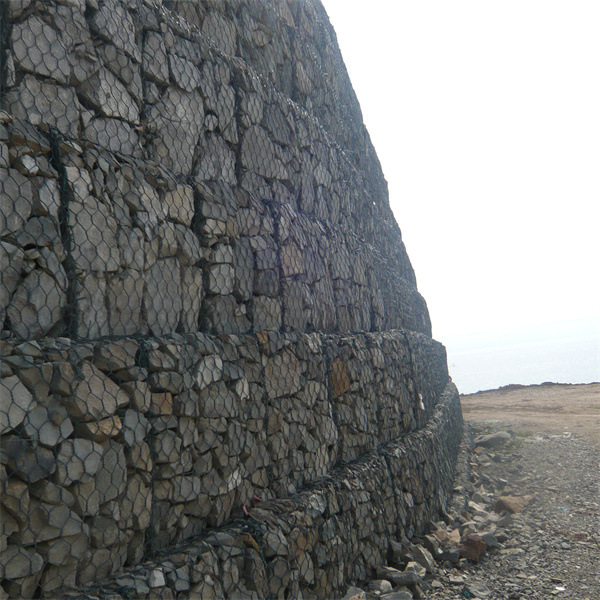aug . 07, 2024 13:30 Back to list
Gabion Cages for Effective Retaining Walls and Sustainable Landscape Solutions in China
The Advantages of Gabion Cages for Retaining Walls in China
In modern engineering and construction, gabion cages have emerged as a highly effective solution for retaining walls, especially in the diverse landscapes of China. These structures, made up of wire mesh cages filled with stones, crushed concrete, or other materials, offer a plethora of benefits that contribute to their increasing popularity among builders and architects alike.
One of the primary advantages of gabion cages is their flexibility in design and application. Given China's vast geographical diversity, including mountainous regions, river valleys, and urban landscapes, the ability to customize gabion structures to meet specific environmental demands is invaluable. These cages can be built to various heights and shapes, accommodating different soil conditions and aesthetic needs. This versatility allows engineers to blend retaining walls seamlessly into the natural environment while maintaining structural integrity.
The Advantages of Gabion Cages for Retaining Walls in China
Additionally, gabion cages are an environmentally friendly option for retaining walls. They are often made from natural stone and other sustainable materials, minimizing their ecological footprint. The use of local materials not only reduces transportation costs and emissions but also enhances the landscape's visual appeal. Over time, as vegetation grows within and around the gabion cages, they can blend into the natural surroundings, promoting biodiversity and aiding in soil stabilization.
china retaining wall gabion cages

Cost-effectiveness is another significant advantage of gabion cages. The materials used—mainly stone and wire mesh—are relatively inexpensive compared to concrete or masonry alternatives. Furthermore, the installation process is straightforward and often requires less manpower and machinery, resulting in lower overall project costs. This aspect is particularly beneficial for construction projects in rural or less developed areas of China, where resources may be limited.
Maintenance of gabion cages is also relatively low. Unlike traditional retaining walls that may require regular upkeep and repairs due to cracking and shifting, gabion cages are robust and can last for decades with minimal intervention. If any damage occurs, repairs are usually simple and can be conducted without the need for specialized skills or equipment.
In terms of safety, gabion cages provide a reliable solution for preventing soil erosion and protecting against landslides, which can be critical in regions where these hazards are prevalent. By utilizing gabion walls, municipalities can safeguard infrastructure, roads, and homes from potential damage caused by unstable soils.
In conclusion, gabion cages represent a versatile, durable, and cost-effective solution for retaining walls, making them a valuable choice for construction projects across China. Their ability to integrate with the environment while providing essential structural support makes them a preferred option for engineers and builders. As the country continues to develop and expand its infrastructure, the role of gabion cages is likely to grow, contributing to safer and more sustainable construction practices.
-
HESCO Gabion Baskets for Coastal Erosion Prevention
NewsAug.22,2025
-
Longevity and Durability of River Rock Gabion Walls
NewsAug.22,2025
-
How to Integrate Gabion 3D Walls in Urban Planning
NewsAug.22,2025
-
Reno Mattress Gabion Applications in Civil Engineering
NewsAug.22,2025
-
How to Install Wire Mesh for Gabion Baskets Properly
NewsAug.22,2025
-
Best Materials for Filling a Chain Link Gabion
NewsAug.22,2025
-
Wire Mesh Thickness Impact on Gabion Wall Load Bearing
NewsAug.12,2025






